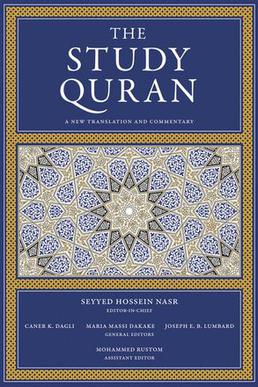
Sufism, also known as Tasawwuf, is a mystic body of religious practice found within Islam which is characterized by a focus on Islamic purification, spirituality, ritualism, asceticism and esotericism. It has been variously defined as "Islamic mysticism", "the mystical expression of Islamic faith", "the inward dimension of Islam", "the phenomenon of mysticism within Islam", the "main manifestation and the most important and central crystallization" of mystical practice in Islam, and "the interiorization and intensification of Islamic faith and practice".
Al-Ghazali, full name Abū Ḥāmid Muḥammad ibn Muḥammad aṭ-Ṭūsiyy al-Ġazzālīy, and known in Persian-speaking countries as Imam Muhammad-i Ghazali or in Medieval Europe by the Latinized as Algazelus or Algazel, was a Persian Sunni Muslim polymath. He is known as one of the most prominent and influential jurisconsult, legal theoretician, mufti, philosopher, theologian, logician and mystic in Islamic history.

Seyyed Hossein Nasr is an Iranian philosopher, theologian and Islamic scholar. He is University Professor of Islamic studies at George Washington University.

The Kneeling, is the 45th chapter (surah) of the Qur'an with 37 verses (ayat). It is a Meccan chapter, believed revealed according to the Islamic tradition during the Meccan phase of Muhammad's prophethood. This is one of the seven chapters in the Qur'an that start with the Muqattaʿat Hāʼ Mīm. It contains discussions of "signs of God" for humankind to reflect on, and describes punishments for those who deny God despite the signs. It also contains the only Quranic verse mentioning sharia, a term which Muslims later use to refer to the Islamic law.

Al-Mumtaḥanah is the 60th chapter (sura) of the Quran, a Medinan sura with 13 verses.

Dhikr is a form of Islamic prayer in which phrases or prayers are repeatedly chanted in order to remember God. It plays a central role in Sufi Islam, and each Sufi order has usually adopted a specific dhikr, typically accompanied by specific posture, breathing, and movement. In Sufi Islam, dhikr refers to both the act of this remembrance as well as the prayers used in these acts of remembrance. Dhikr can be performed in solitude or as a collective group. It can be counted on a set of prayer beads or through the fingers of the hand. A person who recites the Dhikr is called a Dhakir , literally "he who remembers." The content of the prayers includes the names of God, or a dua taken from the hadiths or the Quran.
William Clark Chittick is an American philosopher, writer, translator and interpreter of classical Islamic philosophical and mystical texts. He is best known for his work on Rumi and Ibn 'Arabi, and has written extensively on the school of Ibn 'Arabi, Islamic philosophy, and Islamic cosmology. He is a Distinguished Professor in the Department of Asian and Asian American Studies at Stony Brook University.
Aṣ-Ṣirāṭ al-mustaqīm is an Arabic term that means "the straight path". It is commonly understood as the path that leads to God. In Islamic thought, the straight path is variously used as a reference to the Quran or the Prophet, or Islam as a whole.

Fitra or fitrah is an Arabic word that means 'original disposition', 'natural constitution' or 'innate nature'. In Islam, fitra is the innate human nature that recognizes the oneness of God. It may entail either the state of purity and innocence in which Muslims believe all humans to be born, or the ability to choose or reject God's guidance. The Quran states that humans were created in the most perfect form (95:4), and were endowed with a primordial nature (30:30). Furthermore, God took a covenant from all children of Adam, even before they were sent to Earth's worldly realm, regarding his Lordship (7:172–173). This covenant is considered to have left an everlasting imprint on the human soul, with the Quran emphasizing that on the Day of Judgment no one will be able to plead ignorance of this event (7:172–173).
Fasād is an Arabic word meaning rottenness, corruption, or depravity. In an Islamic context it can refer to spreading corruption on Earth or spreading mischief in a Muslim land, moral corruption against God, or disturbance of the public peace.

Ahmad Ghazālī was a Sunni Muslim Persian Sufi mystic, writer, preacher and the head of Al-Nizamiyya of Baghdad. He is best known in the history of Islam for his ideas on love and the meaning of love, expressed primarily in the book Sawāneḥ.
Beheading was a standard method of execution in pre-modern Islamic law. By the end of the 20th century, its use had been abandoned in most countries. Beheading is still a legal method of execution in Saudi Arabia, Qatar, and Yemen. In Iran, beheading was last used in 2001 according to Amnesty International, but it is no longer in use. In recent decades, extremist Salafi jihadist groups have used beheading as a method of killing captives and terror tactic.
Laylat al-mabit refers to the night in 622 CE in which the Islamic prophet Muhammad fled Mecca for Yathrib, apparently to foil an assassination plan. His escape from Mecca followed the exodus of his persecuted followers to the safe haven of Yathrib, a city that was later renamed Medina in his honor. Laylat al-mabit is often associated in Islamic literature with the reports that Muhammad's cousin Ali ibn Abi Talib risked his life to facilitate Muhammad's safe escape from Mecca.

The Revival of the Religious Sciences is a 12th-century book written by the Persian scholar Abu Hamid al-Ghazali. The book was composed in Arabic by Al-Ghazali on his spiritual crises that stemmed from his appointment as the head of the Nizzamiyya University in Baghdad, which led to his eventual disappearance from the Muslim world for over 10 years.

The Study Quran: A New Translation and Commentary is a 2015 English-language edition of the Quran edited by Seyyed Hossein Nasr and published by HarperOne. Caner Dagli, Maria Massi Dakake, and Joseph Lumbard prepared the translation, wrote the commentary, and also served as general editors, and Mohammed Rustom contributed as an assistant editor by checking the translation and writing some of the commentary. Alongside a new English translation and extensive commentary, The Study Quran features numerous essays, maps, and other material.
Maria Massi Dakake is an American scholar of Islamic studies and associate professor of Religious Studies at George Mason University. Her research mainly focuses on Islamic intellectual history, Quranic studies, Shi`ite and Sufi traditions, and women's spirituality and religious experience. She was a contributor to The Study Quran - a modern verse-by-verse commentary of the Quran.

Zailan Moris is a Malaysian scholar of Islamic philosophy and former professor of the School of Humanities at the University Sains Malaysia. Her main interests are Islamic philosophy, comparative religion and Sufism.
Mohammed Rustom is Full Professor of Islamic studies and global philosophy at Carleton University in Ottawa, Canada and Director of the Carleton Centre for the Study of Islam. An internationally recognized scholar whose works have been translated into a dozen languages, his research interests include Arabic and Persian Sufi literature, Islamic philosophy, Qur’anic exegesis, translation theory, and cross-cultural philosophy.
Caner Dagli is a Circassian-American Islamic scholar and associate professor of Religious Studies at the College of the Holy Cross in Worcester, Massachusetts.









